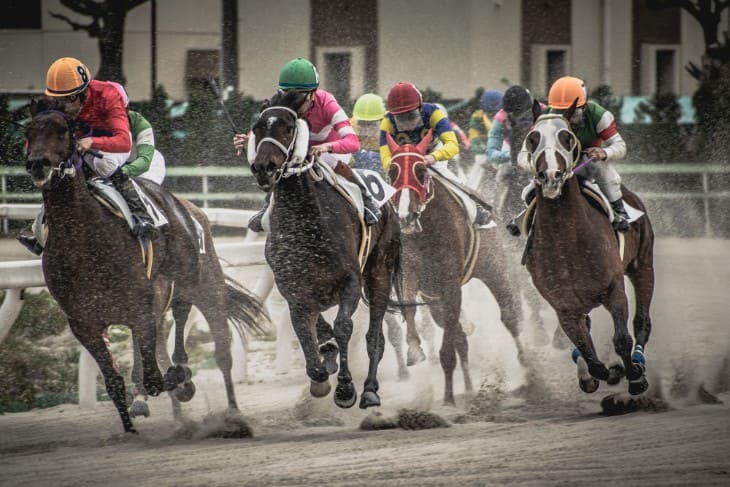Not only is betting on horse races a beloved pastime in the UK, but it also makes up a considerable part of the sports betting industry. Whether you are an occasional gambler or take your gambling activities more seriously, understanding the tax implications of these activities is very important. This article will discuss UK tax laws around horse racing betting, what these mean for you and how they affect your winnings.
How Taxes on Betting Have Evolved in the UK
Betting taxes have changed significantly over time in the UK, particularly about the taxation of horse racing bets. When the government first introduced them in 1961, taxes were imposed on bet slips. That's why this system was later changed to taxing winnings, meaning that betters would give back their gains to the state. For a long time, this was how punting worked.
Then came 2001, which witnessed a significant turning point in taxation. The government exempted punters from tax while burdening bookmakers more heavily. The move sought to make legal and licensed operators more attractive than illegal facilities that gamblers might turn to. By removing direct taxation of winnings, the government encouraged greater participation from those who do not ordinarily gamble, promoting expansion and fair playing within gambling.
Bookmakers now pay General Betting Duty (GBD) based on their gross profits. This simplified tax collection without discouraging individuals willing to place bets. Further steps taken towards this direction included the introduction of 15% Point of Consumption (POC) duties that made all bookies—domestic and foreign—liable for payment of levies derived from earnings accrued by customers based in Britain since 2014. The move aimed to ensure fairness among all companies operating in the United Kingdom jurisdiction, thus creating a conducive domestic business environment.
Punters Don’t Pay Any Tax on Winnings
In the UK, one of the most attractive features of horse race betting is that punters are not required to pay any form of taxation on winnings. This rule was implemented in 2001 after the government abolished the previous system of taxing betting slips and winnings. The move was intended to encourage gamblers to use licensed bookmakers instead of illegal betting shops.
Since then, if you make money from placing bets on horse races, you get all of it. Taxes were, therefore, shifted from individual bettors directly to the bookmakers. Now, bookmakers are required to pay a General Betting Duty (GBD) on their profits. Its rate is 15%. It applies to their revenue from British punters' stakes and wagers placed within the UK territory. The taxation thus does not encourage but still taxes the players who cannot quit gambling.
This method seems very simple and exciting for bettors. Gamblers do not need to worry about calculating tax deductions from their winnings or trying to identify complicated tax forms. By simply placing their wager, observing the races, and keeping every winning they make, it is a clear-cut experience with no worries. This tax regime has helped the UK's betting industry grow big.

The Point of Consumption Tax Defined
- Introduction of the Point of Consumption Tax: The UK government introduced the point of Consumption (POC) tax in December 2014, which marked a change in how betting is taxed within its jurisdiction. This law requires all bookmakers catering to UK customers to pay a 15% tax on their net profits. Implementing this legislation aimed to ensure that domestic and foreign-based bookies contribute to the UK's economic development by contributing taxes.
- Why Was POC Tax Necessary: This new taxation system was introduced to level the playing field between British gambling companies and those outside it. Foreign operators could sidestep some fees paid by British firms, thus gaining an edge over them. For any foreign operator dealing with British bettors through paying appropriate taxes, the UK government had to impose a POC tax to maintain an equitable market environment.
- What Does This Mean For Bookmakers And Bettors: For bookmakers, the POC tax meant adjusting their business models to account for the additional tax expense. Some were concerned this would increase operational costs, possibly altering the odds on bets. On the other hand, gamblers had nothing at stake when these changes occurred. Such taxes directly affect bookmakers' earnings, leaving punters' winnings untaxed. Such a structure still encourages attractiveness toward betting activities, ensuring that no extra fiscal loads are imposed on individuals concerning such bets.
Gambling Tax Implication on Professional Gamblers
Most people in the UK who bet on horse racing do not pay tax on their winnings. However, this is different for those who gamble professionally. Full-time gamblers are treated differently under the tax laws.
There are few professional gamblers, but they may have to pay tax on their wins if one qualifies. This is because gambling may be seen as a business activity when it becomes your primary occupation. The returns gained from gambling could even be taxed like any other income derived from business when such gambling turns into business. However, in the United Kingdom, no direct law states that professional gamblers' earnings are taxable. Instead, it depends on whether their gambling activity is organised enough to be seen as a trade.
What matters here is the extent and manner of gambling. It's about hitting the jackpot and how organised and planned you are. For example, using specific strategies, following a regular pattern of betting, and dedicating full-time hours to gambling might lead to the tax authorities viewing it as a professional activity.
Usually, horse race gamblers who bet at least occasionally are not considered professional players even if they win a lot of money. They can enjoy their winnings without thinking about extra taxes. Such an attitude towards betting makes it accessible to everyone and allows people to continue enjoying it as a pastime without putting up with complex tax systems.
Taxation on Betting Exchanges
Betting exchanges in the UK are unique compared to traditional bookmakers since the punters do not bet with them but against each other. The exchanges make money by charging a commission on winning bets. Betting exchanges must also pay this tax after introducing the Point of Consumption (POC) tax 2014.
The POC tax affects betting exchanges by taxing their commissions from bets. This tax rate is set at 15%, the same as for traditional bookmakers. From this point, it is clear that all gambling platforms, including betting exchanges and traditional bookmakers, contribute equally to taxes paid to the UK government.
This taxation system implies that they must strike a balance between remaining competitive by having low rates and charging just enough to cover these taxes. However, it does not change anything about POC tax for those who use such platforms. They are not taxed on any winnings received while only being charged commissions based on which betting takes place.
Thus, applying POC tax to betting exchanges aimed to create an environment of fairness among different gaming activities operating in the country. This eliminates the chances that one type of service can elude payment of taxes, hence gaining an undue advantage over others, making them applicable whether you go through a traditional bookmaker or use a betting exchange.

Legal vs Illegal Betting
- Understanding Legal Betting: Legal betting in the UK is highly regulated to guarantee fair play and security for all punters. All legal gambling enterprises are conducted by licensed operators who must abide by strict laws established by gambling authorities within Great Britain. These regulations ensure transparency during transactions and that operators remit revenue that adds value to the economy while ensuring responsible gambling practices.
- Risks Associated with Illegal Betting: Illegal or unlicensed bookmakers carry many dangers. Apart from bypassing safety nets designed to protect bettors, they also evade tax obligations that compliant operators must fulfil. Being involved in such activities is punishable by heavy fines or legal action. Besides, if you bet with an unlicensed operator and experience problems like unpaid winning, then there is little or no possible means of recovering your money.
- The Importance of Choosing Licensed Operators: Bettors must ensure that they are using licensed operators when betting. This can be ascertained through the licensing information often available on the bookmaker's website. By betting via licensed operators, the law offers you protection as a citizen of the UK, thereby safeguarding your rights as a consumer while ensuring that your betting activities are carried out transparently and responsibly. Furthermore, through legal gambling, one contributes to public funds since operators pay taxes which finance various social programs.
Anyone involved in gaming activities needs to be able to differentiate between legal and illegal gambling. Opting for lawful bets guarantees a safer punter environment, compliance with fair play rules, and tax revenues, which support many public projects.
Impact of Brexit on Horse Racing Betting Tax
Despite significant changes in the UK due to Brexit, horse racing tax laws have remained largely unaffected. Some concerns arose when Britain withdrew from the EU on how it would influence different sectors, including gambling. However, there has been stability in the taxation structure for horse race betting.
The government has kept its betting tax law to maintain stability in the gambling sector. The Point of Consumption (POC) tax, which bookmakers pay at 15% of their earnings from customers resident in the UK, is still charged. This tax affects all operators, whether they are based in the UK or overseas, to ensure fair competition within the UK gambling market.
These post-Brexit policies have ensured no interruption in the horse racing betting business. It enables gamblers to continue with their hobbies without extra taxes being imposed on them. This decision reflects a commitment towards having an unchanging duty system and supporting the gaming industry as one of the country's primary sources of revenue.
The horse racing industry's tax rules have remained consistent and stable during Brexit, while other aspects experienced significant shifts. The importance of such uniformity cannot be overstated for bettors who need consistent income streams and clear laws governing these streams.
In Summary
Familiarity with horse racing betting taxation guidelines in Britain assists gamblers in manuring their stakes better. Transitioning from taxing gamblers to taxing companies has led to an increase in gambling establishments, hence making betting more popular. If they use legal and licensed operators, punters will not pay any taxes on their winnings, provided there is clear legislation.








